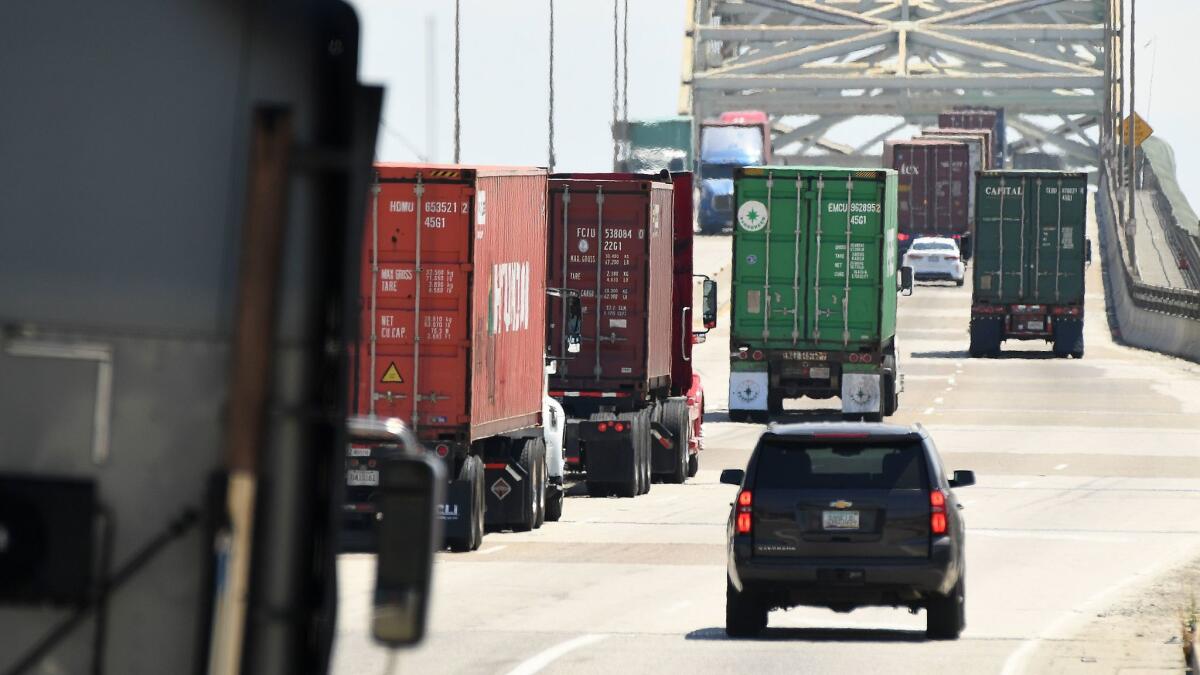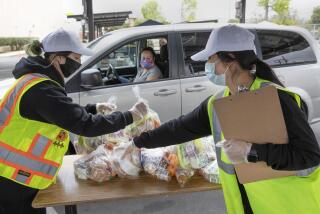California opens highway rest stops to food trucks, helping truckers get warm meals

- Share via
SACRAMENTO — Food trucks will be allowed to operate at the 86 state rest areas in California during the COVID-19 pandemic to provide access to food for highway motorists, including truck drivers, as well as economic relief to food-truck operators, Caltrans announced Friday.
The lifting of the state’s ban on food trucks at rest stops was part of an executive order issued Thursday by Gov. Gavin Newsom and also made possible by a Federal Highway Administration rule change.
The state stay-at-home order issued in response to the COVID-19 pandemic has limited the availability of open restaurants, particularly in remote parts of the state, officials said.
“Helping our truckers and facilitating the movement of essential goods during the COVID-19 crisis is a priority,” Caltrans Director Toks Omishakin said in a statement.
“We hope this gives truckers more food options to keep them and the economy moving,” he added. “We also hope this provides additional business opportunities for food trucks hit hard by stay-at-home health orders.”
The lifting of the ban comes on the same day that California marked more than 1,000 deaths from COVID-19 since the pandemic began. Nearly 30,000 Californians have tested positive for the virus.
Food-truck operators must obtain a permit from Caltrans to operate at one or more rest stops, and the approvals are good only through June 15. Food trucks are also licensed by cities and counties and will be limited to operating in the areas for which they have a local license, officials said.
The mobile food sales must observe state social distancing rules and keep the areas they operate clean.
The decision to allow food trucks at highway rest stops was welcomed by Shawn Yadon, chief executive officer for the California Trucking Assn.
“Access to a warm meal is as essential as the truckers on our roads who continue to transport basic necessities, medical supplies and emergency equipment to communities across the state,” Yadon said.
More to Read
Sign up for Essential California
The most important California stories and recommendations in your inbox every morning.
You may occasionally receive promotional content from the Los Angeles Times.














